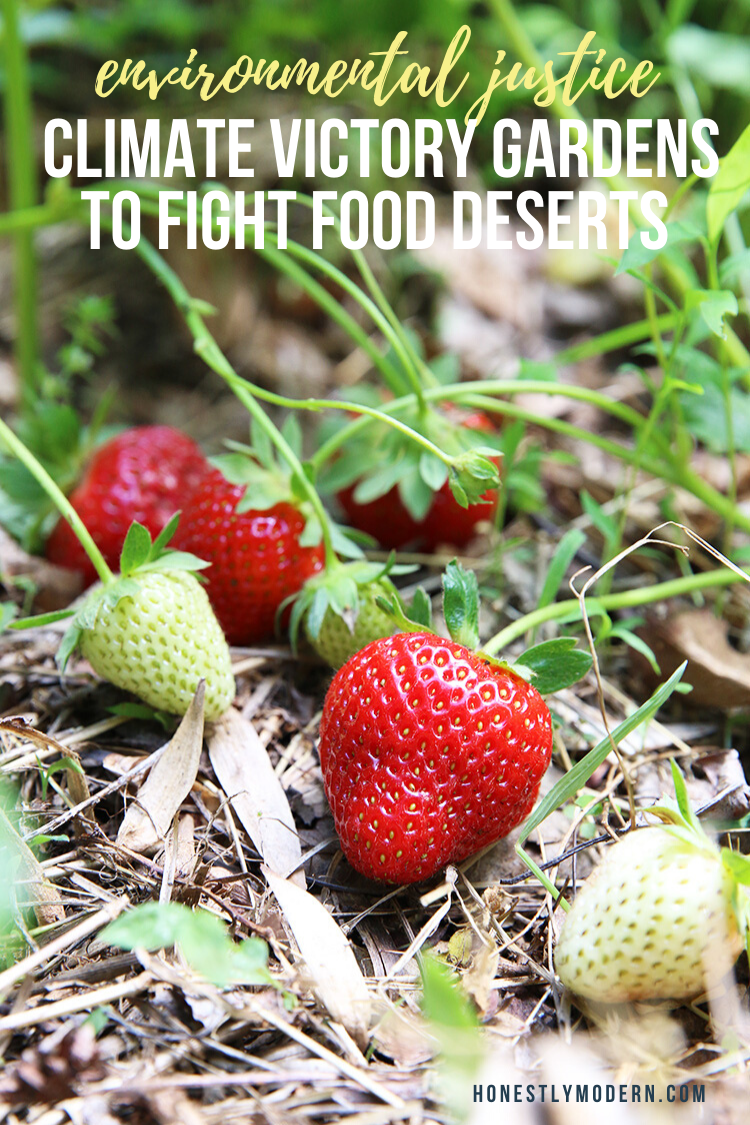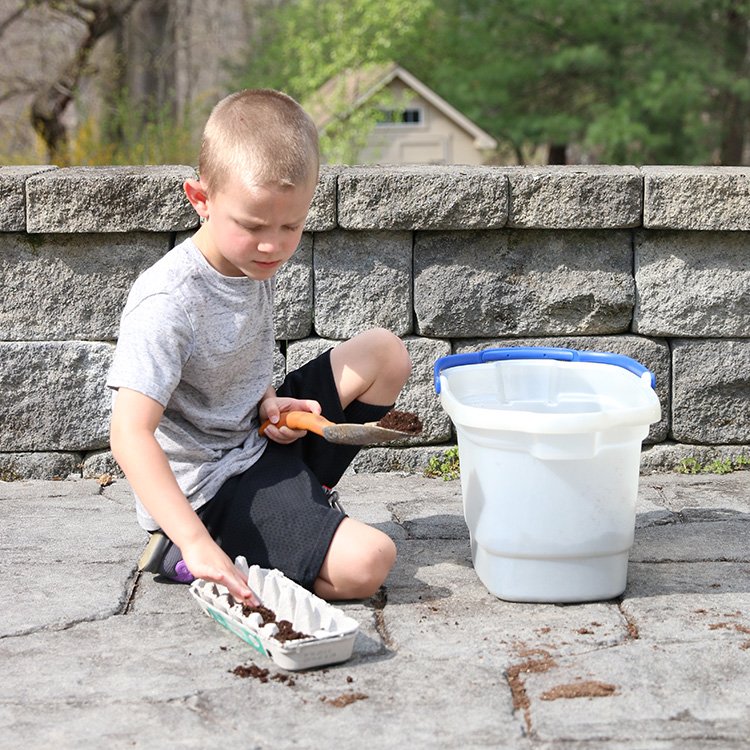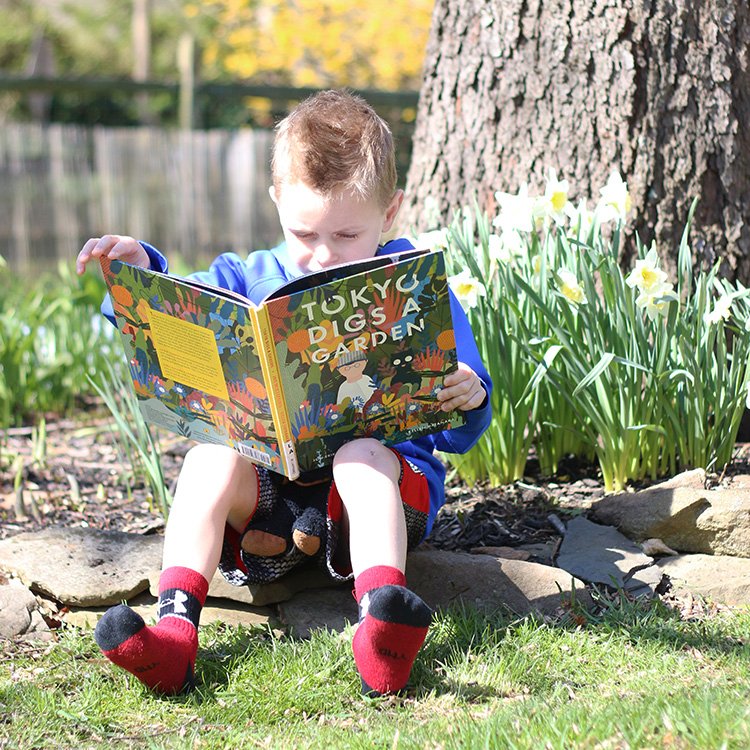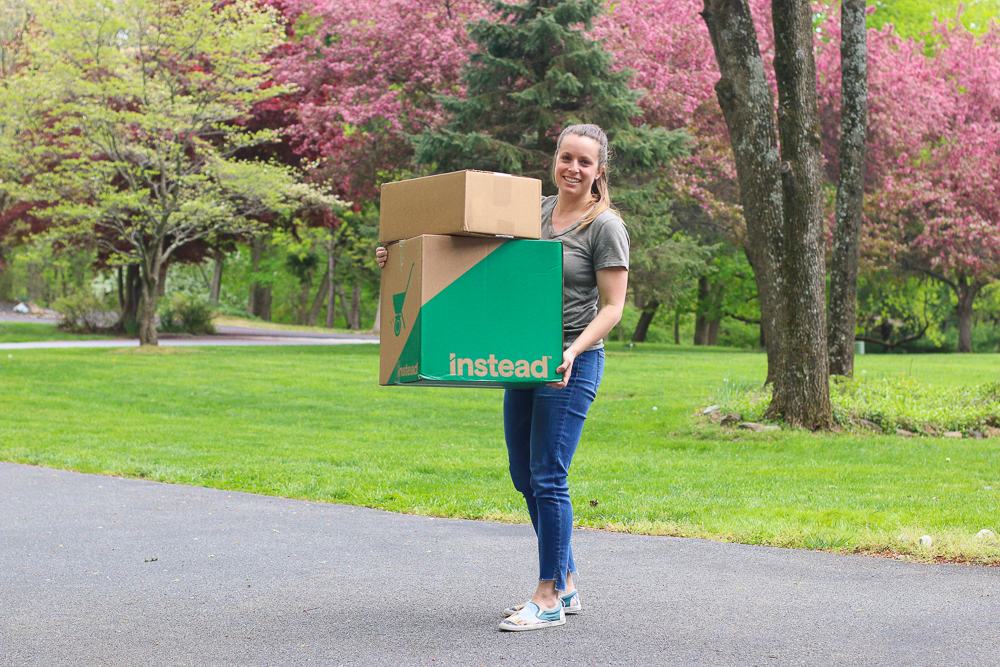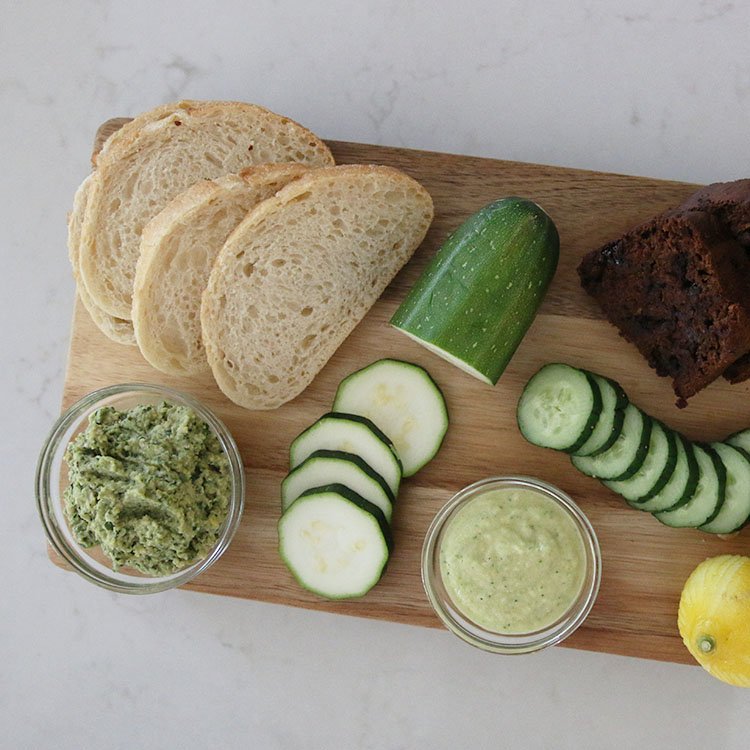Climate Victory Gardens to Fight Food Deserts
Wondering how to help fight food deserts today? The causes of food deserts are deep and complex, but gardening is a great way you can begin to address the inequity of food deserts today. Here are four ways gardening can help alleviate food deserts.
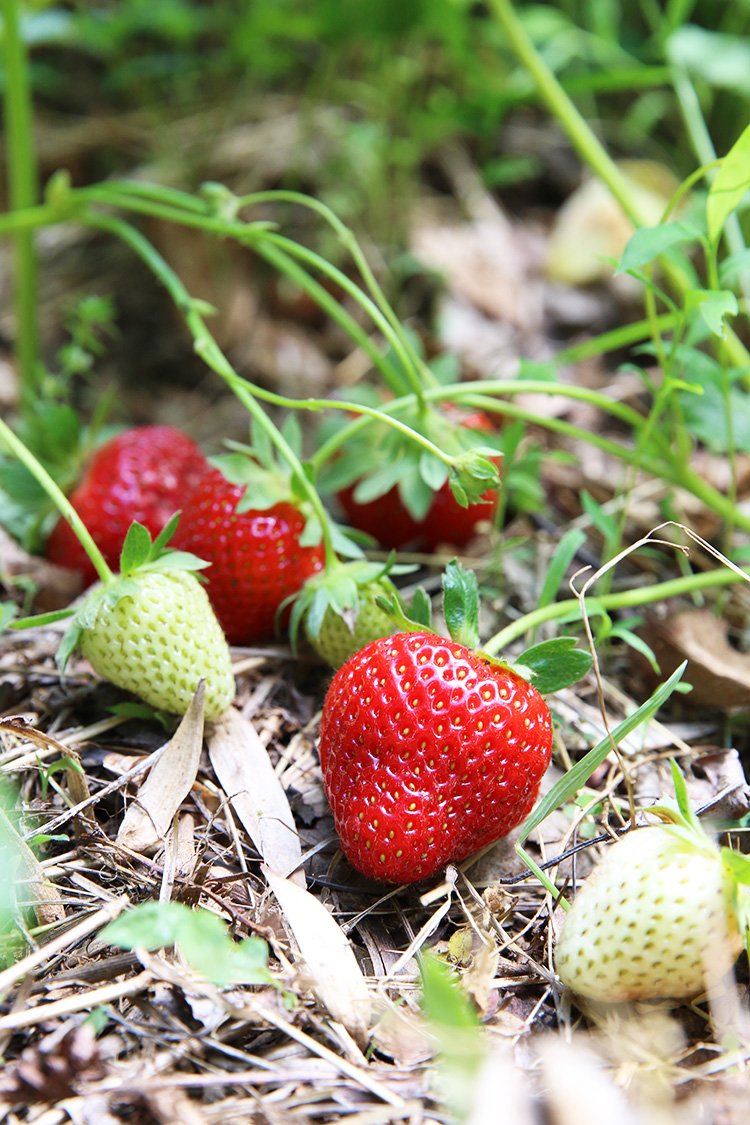
Some communities, especially low-income and marginalized urban communities, have significantly less access to nutritious fruits and vegetables than other communities. These areas with such limited access to nutritious food are called food deserts.
Fewer grocery stores with robust produce sections enter these markets. Additionally, fewer people have cars, so they are less able to travel long distances to purchase groceries at stores with larger food offerings.
Communities in food deserts also tend to have less open space in which they can grow their own food. In some cases, the water and soil in these communities have higher levels of pollutants or contaminants, so it’s harder to grow their own food in a healthy way even if they have space.
Studies show that the lack of access to nutritious food generally aligns with race as well as income. White people have greater access to nutritious food while people of color, in primarily marginalized communities, live in food deserts. The alignment of food access with race is so strong and so unfair that some call food deserts “food apartheid”.
Despite these inequities, there are ways to help fight food deserts and help create greater access to healthy foods for everyone. Some of the necessary changes require difficult and deep changes to our food system as well as addressing systematic racism in our public policies.
In other ways, we can take steps today to help alleviate the symptoms of food deserts. While they won’t change the landscape entirely, they can bridge the way to more long-term solutions to eliminate food deserts and ensure that everyone has access to nutritious food in their own neighborhoods.
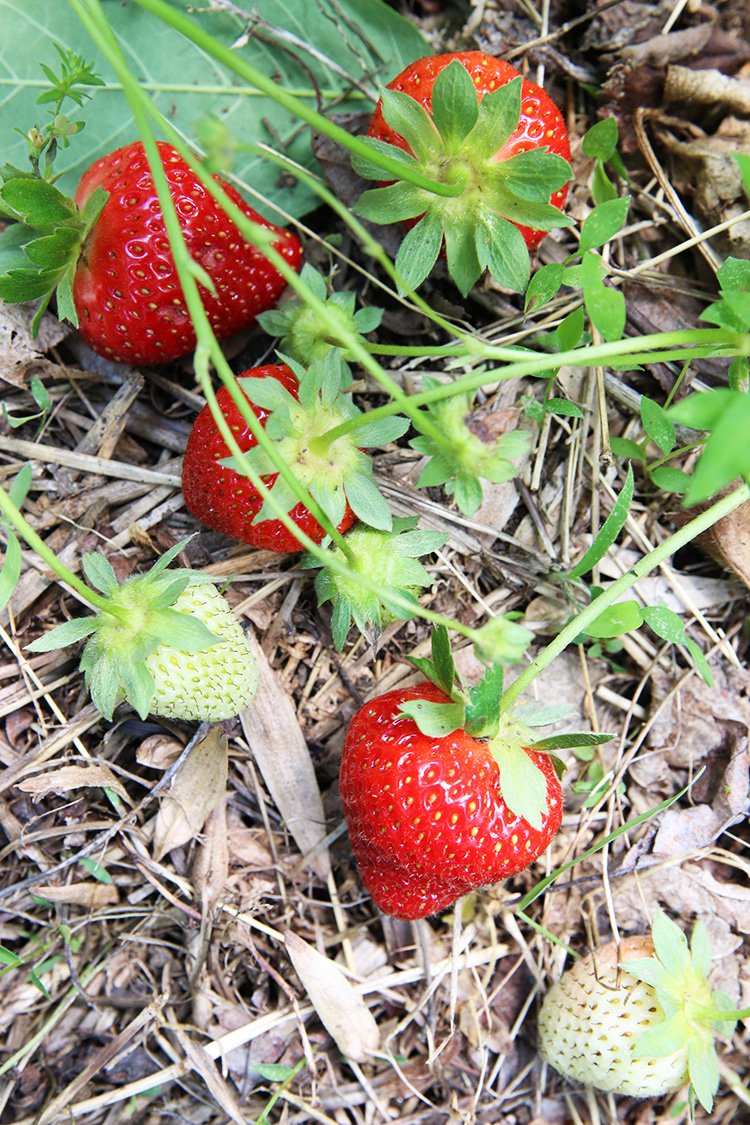
4 Ways To Use Climate Victory Gardens to Fight Food Deserts
Gardens are just one of many ways we can start to tackle food deserts, in particular Climate Victory Gardens that use regenerative gardening principles to grow food in ways that replenish soil health, draw down carbon, and help heal our planet while also healing unhealthy bodies from a lack of nutritious food.
Grow Your Own Food and Donate Excess
First and foremost, we can all contribute to food access equity by learning to grow our own food and reducing dependency on heavily vertically-integrated commercial supply chains. Including corporations in our food supply isn’t inherently bad, but our current food supply relies in large part on a handful of enormous companies. Diversifying the sources of our food increases biodiversity, is better for the planet, and leads to a more resilient and equitable food supply.
If you have space, learn how to grow your own food. You don’t have to tend to a full homestead and skip the grocery stores all together, but work to incorporate growing your own food into your food supply habits.
Your “beginning” can be as simple as a tomato plant in a container or maybe a pizza garden. Just get started, and let your garden project grow as you gain experience.
Most importantly, to the extent that you have excess food from your garden, donate it to a local organization like a food bank or community food pantry so those with less access to fresh fruits and vegetables can relish the bounty of your work.
Create Community Gardens Everywhere
Create or join a community garden or support a school garden if you don’t have space at home. While you may be able to support a community or school garden where you live, also consider how you can help in food deserts if you live in a community flush with full-scale grocery stores.
No plot of land or green space is too small to grow food. Ron Finley, a resident of Los Angeles, saw an opportunity to grow food on the small patches of grass and soil next to sidewalks and throughout his community to help rebuild the soil of his community both literally and figuratively. Check out his video, and I’ll let him tell you a bit more about his projects and the eco-revolution he has ignited.
As he said in his video, someone walking down the street can simply pluck ripe food from the vines of his garden. This is by design, so people in the community have access to healthy food in an area that is otherwise a food desert.
His actions might seem a little odd at first, because we aren’t used to vegetables gardens growing along the sidewalks of urban neighborhoods and the food is available to the public for free. This goes against the familiar fundamental economic principles of ownership of anything that’s a product of our own land. In a capitalist culture, shouldn’t someone pay for that food for the materials, labor, and land put forth to produce it?
On the contrary, our food supply doesn’t have to be entirely dependent on capitalist-driven corporations. I fully understand the desire and need to obtain compensation for the fruits of our property and our labor. And Finley acknowledges in his Ted Talk that an equitable system can’t be entirely free for customers because it needs to be self-sustaining (and that costs money). But to believe that our food system can only function on reliance of large supply chains that maximize profit at the expense of social and environmental justice is a limited view of prosperity.
All that is too say that maybe a community based garden built along the sidewalks of the neighborhood that is maintained by the people for the people isn’t so inconceivable and possibly a more reliable path to food equity and prosperity than the free-market-driven models we have relied on the least century or so.
When a community cares for land together and shares it’s resources and labor, it brings the community together and makes it stronger. It also creates independence for that community and liberates them from the confines of colonized food inequities.
Support Farms and CSAs That Serve Food Deserts
Some farms and CSA (or community supported agriculture) programs are designed with a mission to fill the nutritious food void in food deserts. Many are located in or near urban areas and provide educational opportunities, community development, and fresh produce to neighbors and through farmers’ markets.
Soul Fire Farms, for example, is a Black-owned farm that has many programs to increase food security in marginalized communities. They offer educational programs and internships at their farm to teach local youth how to farm and also how to connect with their ancestry and history through the land. Further, they recently started a Soul Fire in the City Program to help urban residents impacted by food apartheid start their own gardens.
In Detroit, Keep Growing Detroit (KGD) strives to promote food sovereignty among its residents, many of whom live in communities that have limited access to nutritious food but for these KGD urban farms. Keep Growing Detroit offers garden resource programs for residents to start their own small gardens as well as a co-op market to help urban growers sell their fruits and vegetables in local market outlets.
These are just two of many programs and smaller farms like these around the country. Search online to find a program like this in your area and sign up to be a customer, volunteer to help build gardens, donate to their efforts, or use their resources to start your own community garden.
Host A Gardening Skills Class
If you already have some great gardening skills, share them with others. Help people in your community start their own food gardens. We can significantly increase food independence and reduce food deserts if we start to build a culture that incorporates individual and community gardening in a much more robust way.
You could host a class at your home garden, if you feel comfortable, to share your skills and offer hands-on learning to friends, family, and neighbors. Even if you just help close family and friends create their own gardens, that’s a great place to start.
If you want to reach a larger audience, ask if your local library might be interested in letting you a host a class. Libraries offer all sorts of programs to help build a sense of community and teach their patrons new skills. We have gardening classes at our library once every quarter or so, and they are really neat.
As we work toward healing the planet and creating more environmental equity (include link to environmental justice post), food gardens will be an integral component of this movement. Food gardens create food independence and food security. They connect people to the land. They sequester carbon and replenish the soil. They foster food supply resilience. And they are a great way to build a sense of community among neighbors and friends.
Except for the last few decades, food gardens have been imperative to our well-being and existence. As we work toward a more just and healthy society, they might just be one of the key ingredients to a long-term solution for building stronger communities and repairing our Earth.
Have you used gardens to fight food deserts (and make our planet a healthier place for all of its people)?

